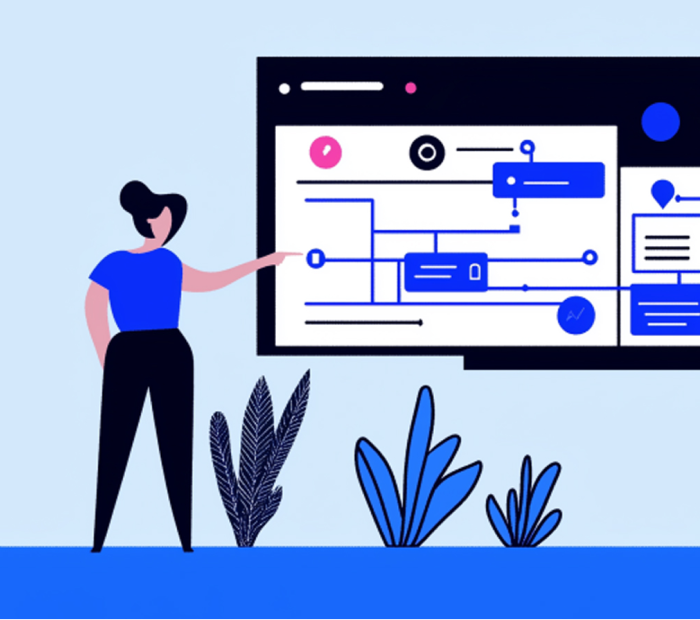The Growing Importance of Website Applications (Apps)
Web applications are among the most popular ways people interact with businesses today. They allow companies to provide customers with a personalised experience by enabling them to perform specific tasks on their websites quickly and efficiently. Whether shopping for clothes or booking an appointment with their doctor, apps are helping businesses improve sales conversions while providing a better overall customer experience.

Advantages of Developing an App for Your Business
Having a web application for your business can provide numerous advantages and opportunities. Here are some key advantages of developing an app for your business.
Enhanced Customer Interaction
An app allows you to connect directly with your customers and engage them in a more personalised and interactive manner. With push notifications, you can send updates, promotions, and offers directly to your users devices, keeping them informed and engaged.
Better User Experience
A well-designed and user-friendly web application can significantly improve the overall user experience. Features such as easy navigation, quick access to information, and customised recommendations can make it easier for customers to interact with your business and find what they’re looking for.
Improved Customer Service
Customer service is an essential component of any organisation. An app can help you improve your customer service capabilities by delivering features like chat assistance and in-app messaging. Customers can quickly contact your support team with any questions or concerns, resulting in faster response times and more customer satisfaction.
Increased Conversion Rate
An app can serve as an additional sales channel for your business. Customers can purchase directly from their smartphones by integrating a secure payment gateway within your app. The convenience of online shopping can lead to increased sales and boost your revenue.
How to Create an App: Step-by-Step Process
Defining Your App Idea and Scope
The first step in creating an app is to define your idea and determine its scope clearly. Identify the purpose of your app, target users, and essential features. Conduct market research to make sure that there’s a demand for your app and to understand your competitors.
Planning and Designing Your App
Once you have a clear idea of what your app will offer, it’s time for outsourcing development offshore to plan and design the app structure and user interface. Create wireframes and prototypes to visualise the user flow and design elements. Finalise your app marketing plan and consider intuitive navigation for a better user experience.
App Development
With the planning and design phase complete, it’s time to start development. Choose a suitable app programming language and framework for your app creation. Collaborate with app developers or an app development company to bring your wireframes and prototypes to life. Break down the app development process into smaller milestones to track its progress.
Implementing and Testing Your Web Application
As you continue developing your app, ensure you implement all the key features and functionalities. Conduct testing with real users and gather feedback to identify and fix bugs or issues.
Web Application Deployment
Once you’re satisfied with your app’s functionalities and performance, it’s time to deploy it to the web. Choose a web hosting and support platform that suits your needs, ensuring reliability and scalability. App advertising and app listing is also necessary to reach your target users.
Monitor, Update, and Evolve
Monitor your app’s performance using analytics tools to track user engagement, retention rates, and revenue. Regularly update your app to improve security and introduce new features. Evolve your app based on user feedback and market demands to stay ahead of the competition.
Custom Application Development: In-House vs Agency
Opting for an app development agency for custom apps development offers distinct advantages over in-house developers. While in-house teams might seem like cheaper options, agencies bring lots of skills and programming experience. Agencies have a diverse talent pool, ensuring that your app benefits from a wide range of expertise, from app designs to intricate design requirements. With a dedicated agency, you tap into their proven track record of successful projects, saving time and resources while delivering a seamless quality application that meets your design requirements.
Create a Business App with Butterfly
Creating an app requires careful planning, design, development, and testing. With the help of Butterfly, a leading app development agency in Melbourne, you can transform your vision into reality. Our team of developers are equipped with technical skills and can work with you throughout the entire development process. For inquiries, contact Butterfly at +61 3 9009 9600.
Business App Development FAQs
How much does it cost to start an app?
Starting an app can be expensive, and the cost can vary depending on project complexity and desired features. A simple type of app can start at around while more advanced ones can cost several hundred thousand dollars or more.
How long does it take to develop a web application?
Developing simple web applications can take a few weeks to a few months. However, more complex applications may require several months to a year or longer. To get an accurate timeline, it’s essential to have detailed discussions with your development team or agency about your business project.
How can I ensure the security of my web application?
Securing your web application includes practicing secure development, using strong authentication and authorisation, encrypting data, conducting regular testing, and keeping software up-to-date.
Can I convert my web application into a mobile app?
Yes, converting a web application into a mobile app is possible. This process is often referred to as web-to-app conversion. Converting a web application to a mobile app involves more than simply copying the design. It requires adapting the user experience, optimising performance, and ensuring seamless integration with mobile devices.




